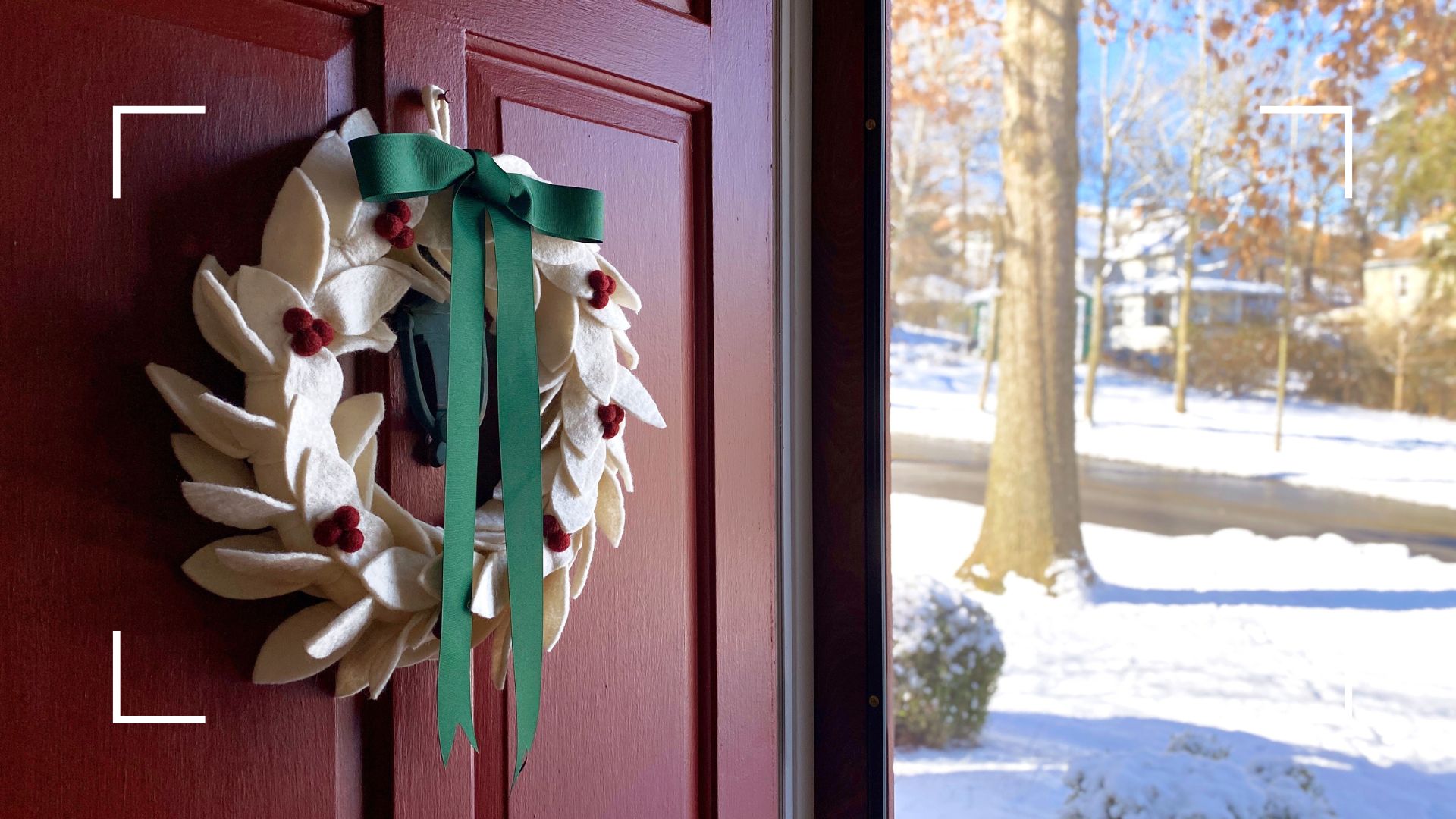How to handle your family this Christmas: 8 expert tips for managing fallouts while keeping your cool
Christmas can be a difficult time for some, with tensions coming to ahead. Here's how to handle your family this festive season


With Christmas fast approaching, it's completely normal if you're feeling anxious about exactly how to handle your family this festive season.
The amount of organising involved could make a CEO sweat, and keeping everyone happy can take UN levels of diplomacy. Instead of anticipating the magic of Yuletide, you’re in a heightened state of anxiety before you’ve even made it to December, as you attempt to juggle your extended family’s requirements with a gift list as long as your arm and a food budget big enough to feed the Isle of Wight.
Family ‘negotiations’ can start months before the supermarket aisles are filled with tinsel, turkeys, and the best Christmas food – mine started in July. And your steely resolve that it’ll be ‘just us this year’? Yet again, you find yourself wavering as a sense of ‘duty’ and some clever guilt-tripping come into play (example: ‘This may be your last Christmas? You said that last year, but well-played, Auntie Pat!’).
My festive sob story? The blissful Italian-themed Christmas I planned has been supplanted by a 500-mile round-trip, complete with service station sandwiches, to see every living relative.
And it’s not just the lead-up. Christmas Day itself can bear witness to an array of emotionally manipulative tactics, from passive-aggressive eye-rolling to epic door-slamming. My blood pressure has gone up just thinking about it. Fortunately, there are ways to circumnavigate this. The first? Remember one thing – while you can’t change your nearest and dearest, you can change your mindset. What will help you weather festive storms is not trying to be all things to all people, but understanding yourself – your boundaries, deal breakers, triggers and limitations – and managing your expectations.
How to handle your family this Christmas
Knowing how to handle your family this season is about establishing your needs. The first step is identifying our boundaries and communicating them, explains psychotherapist Mark Vahrmeyer, from Brighton and Hove Psychotherapy. "It is far better to face the reality of what you’re able to offer and to ring-fence that with boundaries to keep the peace, than to risk resenting yourself and others," he says, adding, "Even if you have family members who are unwilling to respect your boundaries, you can set these for yourself and hold them."
Christmas is always a time of great expectations, adds Lucy Blake, author of Home Truths: The Facts and Fictions of Family Life. "Not only do we strive to feel connected to family members, we often think that the time we spend together should be positive and meaningful. If we’re not decorating the tree, we should be watching Christmas films together." But we often expect too much, adds Blake. "If we think that Christmas is a time when we should feel loved and loving, calm and in control in every moment of every day, that’s an impossible reality to achieve." You see, we don’t change just because it’s Christmas.
Sign up to our free daily email for the latest royal and entertainment news, interesting opinion, expert advice on styling and beauty trends, and no-nonsense guides to the health and wellness questions you want answered.
Mark Vahrmeyer is an experienced UKCP registered integrative psychotherapist offering open-ended depth psychotherapy sessions to individuals and couples in Brighton and Hove and in Lewes. He also offers clinical supervision to counsellors, psychotherapists, and counselling psychologists.

1. Discuss your concerns
Small ways to express your boundaries include not saying yes to every single invitation, task and request. For example, it’s OK to say you’re too tired to come over on Boxing Day. And if you’re hosting, you’re doing exactly that – you’re not staff. Guests with fussy children can bring some of their own food, in-laws can fix their own drinks, siblings can contribute to lunch, and the kids can put discarded wrapping paper in bin bags.
In the lead-up to the holidays, start by discussing any concerns with your partner or a close family member, as they can encourage others to muck in – and give them a proverbial ‘kick up the bum’ – and act as a buffer between you and difficult relatives. "Asking them to support you in steering conflictual remarks or topics of conversation onto safer ground can be a helpful approach,’ says Vahrmeyer.
And talking of conflictual remarks, these are often fuelled by booze. "A variety of characters, with a dose of alcohol thrown in, can become a rather volatile mix," he adds. "If your family is prone to creating an environment that feels explosive, then adding alcohol will only impair your ability to look after yourself." While it’s much harder to prevent other people from drinking, you can keep an eye on your own intake – particularly if you’re more emotional after a few glasses of eggnog - and swap to alcohol alternatives when needed.
Combining one of the best non-alcoholic spirits this holiday season with tonic makes a great substitute for a gin and tonic and having a pick of the best non-alcoholic drinks in a can in your fridge can make the switch even easier, with no mixing involved.

2. Prioritise self-care
Ultimately, self-care doesn’t stop simply because it’s Christmas. "If and when conflict does happen, perhaps the most important thing is to wrap ourselves in kindness," says Blake. "Family relationships are complex, and although we don’t see it on social media feeds, arguments between family members are common."
Rather than trying to have a perfect Christmas – or perfect family – she advises accepting that mixed feelings about relationships are natural. Being related to someone does not mean you have to like them, but you can tolerate them for a short period of time and show the same respect you expect others to show you. Knowing this, and that their presence is only temporary, should help to fill your heart with a little festive joy.
Dr Lucy Blake is an academic, author and speaker who is a leading expert on family estrangement. She has published 40 academic papers, 5 book chapters, 3 online reports and her first book, No Family is Perfect: A Guide to Embracing the Messy Reality was published in 2022.
3. Make a plan
Hosting? Email or text a plan – so it’s there in black and white – to minimise festive stress and reduce unwanted communication. "That way, people know what’s happening and what’s expected – for example, do they need to bring food, who’s doing what," says Dee Holmes, clinical services manager at Relate. Allow for flexibility, though, as guests may need to feed children, take medication or rest.
The same applies to gift-giving – a competitive sport for some. "A major source of conflict around Christmas is spending on presents," says Vahrmeyer. "Anticipate this and attempt to reach consensus on a budget, or state your budget in advance, so others know what to expect."
Dee Holmes has worked at Relate since 1997, when she first trained as a Relationship Counsellor. She has since trained in family, young persons and children’s counselling and worked as a supervisor for several years before taking on the role of a senior practice consultant in 2015 and clinical services manager in 2022.
4. Use positive language
If you can’t avoid an event, you can limit the amount of time you spend there. Think about how you say it. "Try to phrase things positively," says Holmes. Aim to convey excitement about seeing loved ones, but include a succinct explanation as to why your visit will be short.
She suggests statements such as 'I enjoy seeing everyone but I’m not an evening person so won’t stay late' or 'It’ll be better if we come after the baby’s nap, so we can enjoy the afternoon together.'

5. Take a beat
There are strategies that could be helpful to have ready, says Blake. "For example, if your uncle is going to talk about a contentious political issue, stay calm by taking deep breaths and trying not to engage in that conversation." Breathing techniques for anxiety are tried-and-tested ways to relieve anger or anxiety.
If someone is getting on your nerves, try this:
- Close your mouth
- Breathe in slowly and deeply through your nose, counting to four
- Hold your breath for four seconds
- Through pursed lips, breathe out for four seconds
- Pause for four seconds, repeat
6. Find an ally
On the verge of telling your belligerent brother-in-law to go suck an egg? A subtle moan in a trusted person’s ear or texting a friend can alleviate frustration. But be cautious of focusing on just one person. "You may have favourites, but it’s good to not show that!" says Holmes.
7. Be the bigger person
In potentially explosive situations, backing down isn’t a sign of weakness. "Decide whether it’s in your best interests to try and win the fight with that drunk uncle, or to remain calm and focus on how to spend the rest of the day once family are out of your hair," advises Vahrmeyer.
"There’s no guarantee conflict won’t be on the table," adds Blake. "But we cannot control others, we can only try to control ourselves."
8. Create some space
A short walking meditation session, lie-down, or even daydreaming during conversations can be the difference between coping and losing your cool. "Taking time out, whether slowing down and disengaging, or physically taking a breather outside, are ways of creating emotional and psychological space," says Vahrmeyer.
Keep visits with tricky relatives under three hours. If you’ve travelled a long way, consider a hotel rather than staying over – peace of mind will justify the cost.
According to a YouGov poll, 24% of Brits say seeing certain family members at Christmas causes them stress. If you're one of them, knowing how to deal with stress on the lead up to Christmas can be helpful.
A lifetime of blurred boundaries with family members may manifest as this stress and as "lots of worrying a guilt felt for others", says integrative psychotherapist Billie Dunlevy. As much as we try to put loved ones first, it’s helpful to remember that you are not responsible for the feelings of another person.
Debra Waters is an experienced online editor and lifestyle writer with a focus on health, wellbeing, beauty, food and parenting. Currently, she writes for the websites and Woman&Home and GoodtoKnow, as well as the Woman, Woman’s Own and Woman’s Weekly magazines.
Previously, Debra was digital food editor at delicious magazine and MSN. She’s written for M&S Food, Great British Chefs, loveFOOD, What to Expect, Everyday Health and Time Out, and has had articles published in The Telegraph and The Big Issue.
